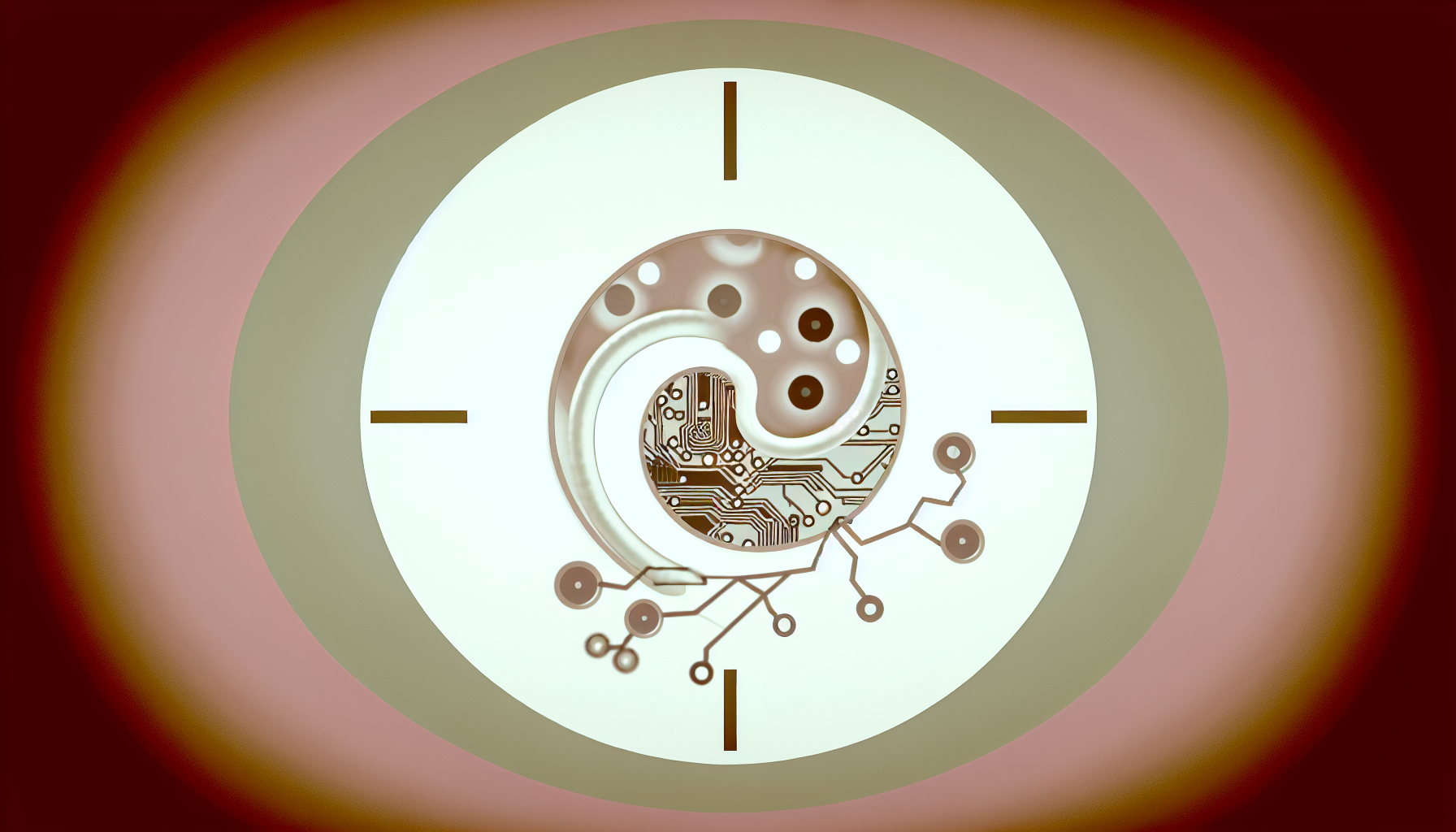Time, they say, waits for no one. It’s an immortal phrase that captures the essence of our fleeting experiences. However, what if we told you that the advent of Artificial Intelligence (AI) might alter our very perception of time? Sounds like a plot straight out of a science fiction movie, doesn’t it? Let’s explore this fascinating interplay between AI and temporality.
The Human Perception of Time
First, let’s establish a baseline. For us humans, time is a linear track, punctuated by experiences and events. We measure it in seconds, minutes, hours, days, and so on. We reminisce about the past, live in the present, and anticipate the future. Our understanding of time is deeply rooted in our biology, culture, and consciousness. Notice how time flies when you’re engrossed in a captivating novel or drags like a snail during a tedious meeting? Perception of time, in other words, is highly subjective.
AI: An Unbiased Timekeeper?
Unlike humans, machines approach time quite differently. Artificial Intelligence, with its precise algorithms and non-biological construct, lacks the subjective distortions we experience. It processes information in cycles and milliseconds, maintaining an unwavering rhythm. While humans might struggle to comprehend the events happening in a microsecond, AI operates comfortably within this realm, leading to fascinating implications.
Real-Time Processing Versus Human Cognition
Think about how humans react in real-time scenarios—a reflexive jerk of the hand away from a hot stove, or the quick dodge to avoid an oncoming vehicle. Now, imagine AI in similar situations, making decisions at astronomical speeds. Autonomous vehicles, for instance, process an immense amount of data in real-time to navigate safely, something we humans cannot replicate with such precision and speed.
This discrepancy in the processing of “now” versus “later” raises intriguing questions about human-AI interactions. Could there be frustrations when humans and machines operate on drastically different timelines? Will we need to recalibrate our sense of waiting and patience when dealing with AI?
AI’s Impact on Future Prospects
AI’s predictive abilities also present an interesting twist in our concept of the future. Advanced AI systems analyze vast datasets to identify trends, make forecasts, and even suggest future actions. By offering an informed vision of the future, AI could significantly alter our approach to planning and decision-making. Imagine how industries like healthcare, finance, or climate science might evolve when guided by almost prescient insights from AI.
However, there’s a philosophical quandary here. With AI offering highly accurate predictions, do we begin to feel that the future is predetermined? Could this lead to a sense of fatalism, dampening our perceived control over personal and collective destinies?
Augmented Memory and the Past
A significant aspect of human existence is our relationship with the past, sculpted by memories. AI technologies like deep learning have the capability to archive, analyze, and retrieve information far more efficiently than the human brain. This leads to the concept of an “augmented memory”—an external, machine-enhanced recollection of events.
We already see glimpses of this in digital photo albums, smart assistants reminding us of anniversaries, and social media ‘memories’ that bring up posts from years ago. As AI systems become more sophisticated, they could start managing large parts of our personal history. Will this lead to a richer, more precise understanding of our past, or will it erode the selective, narrative-driven memory that forms our personal identity?
Relativity of Time in Human-Machine Synergy
Lastly, let’s dive into the philosophical idea of ‘relative time.’ Albert Einstein’s theory of relativity reminds us that time is not an absolute, but something that can be stretched and compressed based on the observer’s frame of reference. In a world where AI significantly impacts our perception of past, present, and future, we might find ourselves living in a kind of relative temporality. Our interactions with AI could redefine what we consider as immediate, urgent, or even nostalgic.
For example, AI might remind us of an impending deadline we didn’t consider immediate, altering our sense of urgency. Conversely, it might bring stability to our chaotic schedules by efficiently managing tasks, compressing the feeling of time slipping away. The synergy between human elasticity and machine rigidity could give birth to a new, blended perception of time.
Embracing a New Temporal Reality
So where does this leave us, the humble time-bound humans? The integration of AI into various facets of our lives offers both challenges and opportunities. We’ll grapple with questions of autonomy, existential control, and the nature of reality itself. Yet, amidst these profound contemplations lies a glimmer of excitement. We’re on the cusp of a new temporal reality, where the interplay between human subjectivity and machine precision might teach us more about time than we ever thought possible.
Time, indeed, waits for no one. But perhaps, with AI, we might just learn to navigate it a bit differently—pinging between milliseconds and millennia, creating a dance between the tangible now and the infinite future. And who knows? Maybe our new catchphrase will be, “Time waits for no one, except AI.”

Leave a Reply